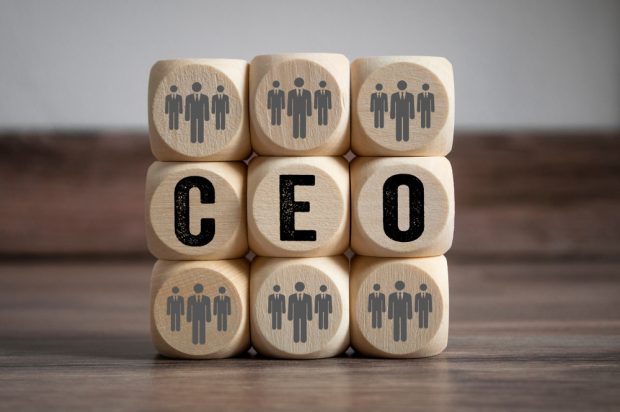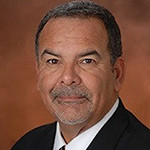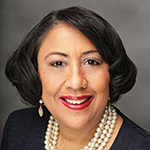 Source: Shutterstock.
Source: Shutterstock.
Honesty. Communication. Trust. Engagement. Compassion. Empowerment.
Those words were frequently mentioned by credit union executives when asked what helped them manage through the most difficult year in the industry's history, and how they expect to lead their credit unions through what is expected to be a challenging 2021.
 Gary Perez
Gary Perez Recommended For You
"I believe in transparency in keeping the lines of communications open and being honest," Gary Perez, president/CEO of USC Credit Union in Los Angeles, said. "Because we're in this COVID era there were lots of questions raised in terms of how the pandemic will impact the organization. How would it impact staffing? What will the future look like? We opted to be brutally honest with our people at the outset. So, I made a pledge that we would do all we can to avoid layoffs, but we also made it clear that we had to stop short of an absolute guarantee because no one could predict the severity or duration of the crisis. We have been able to avoid layoffs and we continue to do all we can to prevent that from happening."
Building and fortifying that trust with the credit union's 95 employees has been a critical component to Perez's leadership success. When he was named president/CEO in 1988 at the age of 29, USC CU was managing about $15 million in assets and serving about 8,000 members. Since then, the credit union has grown to $674 million in assets and more than 76,000 members.
"All small credit unions are CEO-centric in that everything runs through the leader's desk," Perez said. "And as you grow in size and scope – and it took me a while to realize this – you have to build a team, you have to trust the team, and then you have to realize that you don't have to be the star. You don't have to be at the center of everything."
 Larry Tobin
Larry Tobin For Larry Tobin, president/CEO of the $3.3 billion FAIRWINDS Credit Union, trust was one of the key reasons why the Orlando, Fla.-based cooperative was prepared to meet the many challenges of COVID and will continue to be prepared for new challenges that are expected to surface in 2021.
"A successful leader places trust in others to take the lead and manage," Tobin said. "They trust that their teams will go above and beyond to get the job done, while taking care of their members and employees."
The credit union's 560 employees serve a membership of more than 200,000.
He pointed out that even when the credit union had to pivot during the coronavirus crisis to provide full account services via drive-thru stations and assemble a specialized team to support PPP loans, FAIRWINDS employees only thought of how to continue to best serve members safely and efficiently.
"It's my responsibility as a leader to ensure the growth and success of each and every one of our employees. Leaders should understand that it's their role to serve employees first," he said. "It's a principle I've lived by every day. When you foster an employee-first environment day in and day out, it becomes organic. It becomes your culture."
 Renee Ouellette
Renee Ouellette Renee Ouellette became president/CEO of the $377 million University Credit Union in Orono, Maine in December 2019, just three months before the deadly coronavirus began to spread throughout the nation.
"A big thing for me is that leadership involves a team, and first and foremost is the team of the entire credit union," Ouellette said. "I don't see myself as being any different than anyone else on the team because it's about bringing everyone together and really making sure that we all understand what the goal is that we're trying to achieve, and that we're all moving forward on a path to accomplish that."
What also has helped the first-year CEO was her ability to stay in nearly constant communication with her team at all levels, and to explain the "why" behind decisions that are made.
"As we were first approaching the pandemic, there were so many unknowns out there. We stayed in close communication with our team by letting them know every step of the way as to why we were making the decisions that we made. That was important so that they could really understand and not just kind of be out there wondering, and coming to their own conclusions, which can be detrimental to accomplishing the goal," Ouellette explained. "So, I think that was really critical for us as we were making those decisions and in keeping everyone engaged."
While she leverages all channels of communication for employee engagement, Ouellette in particular uses email to interact with employees at all levels. She has found the emails do help motivate employees to keep in touch with members so they can find out how the credit union can better serve their needs, and work with those who have fallen on hard times because of the pandemic.
"I try to provide my staff with emails that have different thoughts and make them fun, lighthearted and interesting to read," she said. "It takes a lot more time but it's worth it."
University CU's 85 employees serve more than 28,000 members.
 Lynette Smith
Lynette Smith During her busy days, Lynette Smith, president/CEO of the $133 million TruEnergy Federal Credit Union, drinks a cup of warm water with lemon to sooth her vocal cords. That's because she spends much of the day talking to her employees, most of whom are now working from home.
For Smith, compassion and empowerment have been top of mind as she has led the daily operations of the Springfield, Va.-based credit union and its 24 employees, who serve more than 8,700 members.
"When I pick the phone up to talk to an employee, the first thing I ask is, 'How's your family?'" Smith said. "Compassion is important to remind and help you understand what's going on with your employees because their lives have changed in so many ways. I have 90% of my employees working remotely now, and we accomplished that within two weeks, so there were major adjustments for my employees and their work-life balance challenges.
Smith also formed a pandemic task force to enhance the credit union's workforce engagement efforts.
"I was pretty happy that I was also able to reward my employees with a pandemic incentive bonus," she said. "I firmly believe that if our employees are happy and healthy, our membership will survive and thrive."
While networking with other credit union executives throughout her career has been instrumental to sharpening Smith's leadership skills and abilities, she said she also believes it's important to empower employees through mentorship that can help guide them through this protracted crisis and beyond it.
Along with Duane Day, assistant vice president of e-services for the $4.2 billion MECU in Baltimore, Md., Smith is co-chairing the expansion of the African American Credit Union Coalition's mentorship program for 2021. The program's goal is to pair 50 mentors with 50 mentees to foster long-term professional relationships and career growth for credit union professionals.
Smith said she recognizes there is a lot of talent in the credit union space, and hopes the mentorship program will develop that talent to benefit the industry as it continues to face the pandemic's current and future challenges, and to prepare new leaders to grow the movement when the coronavirus diminishes as a major threat.
"I've been in the industry for 31 years and I've never seen anything as devastating as this pandemic," Smith said. "I think everyone wants to put 2020 behind them, and I'm one of them, too."
© Touchpoint Markets, All Rights Reserved. Request academic re-use from www.copyright.com. All other uses, submit a request to [email protected]. For more inforrmation visit Asset & Logo Licensing.







